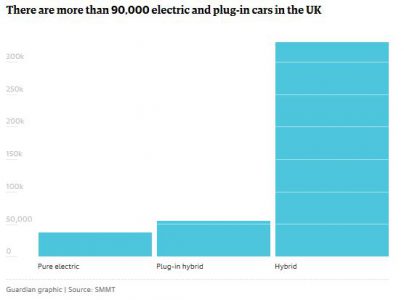More battery-powered vehicles would mean cleaner air and quieter streets – but also a drain on the National Grid and less fuel duty to the Treasury

Streets will be quieter, the air will be cleaner, people will spend less time at petrol stations and car factories might even return to Britain’s shores if the country switches to electric cars in a dramatic, widespread fashion.
But widespread adoption of battery-powered vehicles would not be without challenges too. A large-scale switchover to electric cars could create problems for power grids, could mean roads lined with charging poles and it could also leave a big hole in public coffers as fuel duty dries up.
With just over 90,000 fully electric and plug-in hybrid cars now on UK roads, such risks and benefits might look a way off.
But this week big changes have been announced. On Wednesday Volvo said it will only launch electric or hybrid cars from 2019 and just a day later Emmanuel Macron’s new government pledged that France will ban diesel and petrol cars by 2040. Battery-powered travel could be coming far sooner than previously thought.
According to research published this week by Bloomberg New Energy Finance the proportion of fully electric new cars sold in the UK will be one in 12 by 2030 – up from one in every 200 today.

The surge in electric cars will have to be accompanied by thousands of new charging points to plug them all in.
Today there are around 4,000 publicly accessible locations with 13,000 plug sockets. Of the 13,000, a fifth are so-called rapid charging connections that will top up a Nissan Leaf, the UK’s best-selling pure electric car, in half an hour.
Read more: The Guardian


